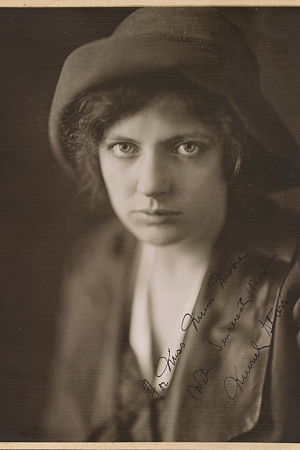Some sort of afterlife
I recognize Ravello in the dream
Where Gore Vidal and Howard walk towards
Me, smiling, with martinis in their hands.
We’re now inside La Rondinaia (or
The Swallow’s Nest). I sense unevenness
Beneath my feet, look down, and see the floor
Comprised of pale blue jigsaw pieces, all
In disarray. I must tread carefully,
In order not to break these scattered tiles
That seem like fragments from a fallen sky.‘Intimation’ by Heather Neilson (July 2012)
Gore Vidal (1925–2012) emphatically rejected any conventionally religious version of an afterlife. In an essay, ‘Armageddon?’ (1987), he contrasted his own view on the matter with that of Norman Mailer. ‘[B]ecause there is no cosmic point to the life that each of us perceives on this distant bit of dust at galaxy’s edge, all the more reason for us to maintain in proper balance what we have here. Because there is nothing else.’ Five years later, in Screening History, a meditation on the significance of cinema in his own life, Vidal suggested that the medium of film offers an alternative possibility of immortality.
He recalls the impact of a British gothic fantasy film, The Ghost Goes West, which he watched in adolescence. Robert Donat stars in the film as the ghost of a Scottish clansman killed in battle in the eighteenth century. The plot’s catalyst is the dismantling of the castle, which is transported to the United States for reconstruction by its new owner. In the end, all is resolved and the ghost is finally able to pass into the beyond. Reflecting on the enduring appeal of The Ghost Goes West, which he described as having haunted him, Vidal considered its emphasis on clan loyalty. There is, as well, ‘the attractive conceit that personality survives death, even if one is only a ghost on a boring assignment’. Vidal would often return in his writings to the subject of ghosts. One of his favourite fictional characters, Caroline Sanford, echoes her author as she discusses the subject with the terminally ill Harry Hopkins, Franklin Roosevelt’s secretary of commerce. ‘I always thought in my movie days that the shadow of oneself on the screen is the true ghost preserved forever, at least in theory.’ (The Golden Age, 2000)
Since his own death at the age of eighty-six, Gore Vidal has been evoked in numerous ways, for a variety of purposes. In the plethora of obituaries, he was remembered as an essayist, novelist, playwright, actor, media personality, and a tenacious critic of American politics and presidents. Nicholas Wrathall’s documentary Gore Vidal: The United States of Amnesia (2013) provides an engaging and informative introduction to its subject’s life and times. In the several memoirs which soon ensued – written by acquaintances of varying degrees of intimacy – Vidal was generally represented as supremely witty, ‘generous, hospitable, loyal to friends, and a quiet contributor to charities that benefited other authors’ (from Michael Mewshaw’s Sympathy for the Devil: Four decades of friendship with Gore Vidal [2015]). However, he was just as consistently portrayed as an unpleasant alcoholic who, according to his second biographer, Jay Parini, ‘tended to lash out at anyone who refused to condone his self-destructive drinking’ (Every Time a Friend Succeeds, Something Inside Me Dies: The life of Gore Vidal [2015]). The last years of Vidal’s life were blighted by the effects of a chronic alcohol use disorder. In this, ironically, he followed the path of his mother, Nina, from whom he had been estranged for decades before her own death.
Continue reading for only $10 per month. Subscribe and gain full access to Australian Book Review. Already a subscriber? Sign in. If you need assistance, feel free to contact us.











Leave a comment
If you are an ABR subscriber, you will need to sign in to post a comment.
If you have forgotten your sign in details, or if you receive an error message when trying to submit your comment, please email your comment (and the name of the article to which it relates) to ABR Comments. We will review your comment and, subject to approval, we will post it under your name.
Please note that all comments must be approved by ABR and comply with our Terms & Conditions.